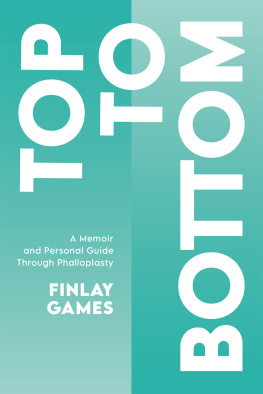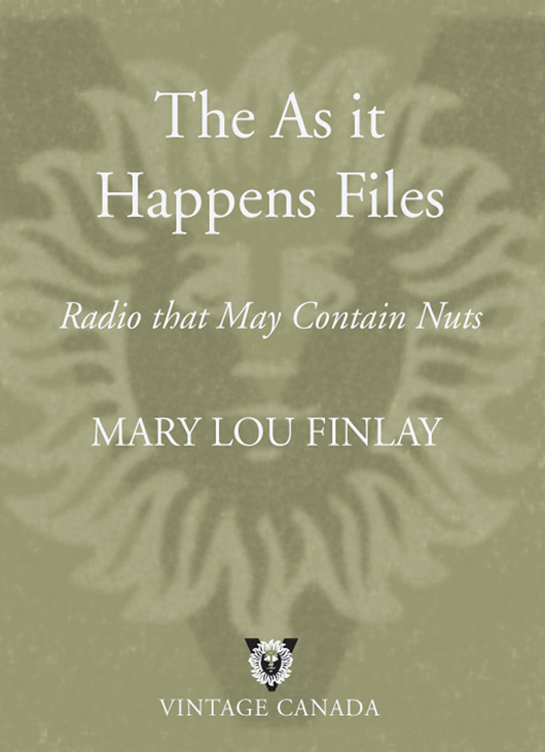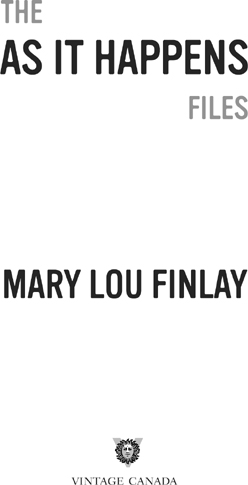INTRODUCTION
A few months after taking my leave of the CBC and my job hosting As It Happens, I tuned in one night to hear this listeners phone call:
The sale of a 36-year-old ham-and-cheese sandwich half-eaten by Richard Nixon: this is why I listen to the CBC. This is why I love As It Happens.
The caller was expressing what thousands of people from across Canada and around the world have told us for years: however good we may be at covering the Big Story, its the half-eaten-by-Richard-Nixon-ham-and-cheese sandwiches that really stick in their minds.
As It Happens is the Canadian Broadcasting Corporations second-longest-running current affairs show (Ideas is the longest), and on good days it still sounds younger and brighter than almost anything else on the dial. I can say this because I dont claim credit for it; I think the credit is due mainly to the format devised in the early years by Mark Starowicz and exploited so brilliantly by a succession of producers and hosts, including Barbara Frum and Al Maitland. Basically, its a phone-out show that daily chases down the stories the producers find most beguiling and delivers up people for one of the hosts to talk to. On any given day, the topics may range from war in Chechnya to a nettle-eating contest in Yorkshire and anything in between. Sprinkled among the interviews are bits of music and readings and recorded speeches and humour that add colour and texture.
The show has been drawing fans to CBC Radio from around the world for 40 years. When I left, over one hundred U.S. stations were broadcasting As It Happens, and we were breaking new ground at home; the ratings at that time put AIH in first place in its time period in the very competitive Toronto and Vancouver markets. Not that markets are a prime concern since CBC Radio is commercial free, deriving its financial support from a government-mandated annual taxpayer subsidy.
Perhaps its because CBC Radio doesnt have to worry about advertising sales that its developed into such a different animal than its TV cousin, or maybe its because radio as a medium is so different. In any case, CBCs radio arm has been more successful at creating an identity that sets it apart from its competitors at the same time as it unites Canadians across the country. What people say they like about As It Happens, in particular, are its breadth and depth, its fairness, its sense of humour and its ability to take them immediately to the heart of unfolding events, be they regattas, riots or bank robberies.
But, above all, listeners seem to cherish the shows devotion to the odd and the eccentric. During our 30th and 35th anniversary years, when we invited the audience to tell us what they would like us to dredge up from our archives, the most common request was for Barbara Frums Big Cabbage story, otherwise known as the Goddamn Cabbage Story (see Chapter 3).
Now, as the show celebrates its 40th birthday, it seems like a good time to remember some of the weird and wonderful people I met while hosting AIHpeople like the Canadian inventor of the bear suit, the guy who walks naked across the U.K., and Mike the Headless Chicken from Fruta, California (not, strictly speaking, a person).
I couldnt write about these exotics, though, without also remembering a few of the seekers, adventurers and heroes whose tales have thrilled and moved me over the years. Their names include Ignacio Siberio, the man who wouldnt drown; Canadian astronauts Roberta Bondar and Julie Payette; and Mike Stevens, who brought music and hope to a remote village where both were in short supply.
Sometimes the people make the story, and sometimes its the story that brings forth the people. It was 9/11 that introduced us to Kathie Scobee Fulgham. As the daughter of the man who was in command of the space shuttle Challenger when it exploded in 1986, Kathie Fulgham knows what its like to watch your father die over and over and over again on TV. The Air India crash, recounted in Chapter 15, brought us Anant Anantaraman, who planted flowers among the ashes of his life. And the war in Iraq led us to Salam Pax, the Baghdad blogger who provided a rare insiders view of the conflict.
Combining these themesthe silly and odd, the brave and pioneering, the big news eventswill result, I hope, in a kind of print version of the radio show. Of course, Ive omitted more than I could include. To mention all the men and women, boys and girls, fish, pigs, turkeys and uncooperative parrots who informed and delighted me over the years would be to embark on a never-ending journey. I hope all the people who are not mentioned will forgive me. To all of them, from the bottom of my heart, a big thank you for being part of our great conversation.
To CBC Radio, too, I owe a huge debt of gratitude for having provided the opportunity, in As It Happens, to air this conversation and for allowing me to burrow about in the archives to retrieve material for the book.
Above all, I am beholden to my former colleagues at As It Happens. Its partly to honour them that Ive written this, for without their dedication, patience, brains and perseverance, the show would not have lived up to the lofty standards set by its creators, and it wouldnt have been such a joy to host. I salute them and thank them. I hope I havent misremembered too much.
ONE
The Man Who Wouldnt Drown
Radio to buoy you up
I n December 2004, Ignacio Siberio, a Miami lawyer, was spearfishing alongside his small power boat when a stiff wind came up and took the boat away. For about an hour and a half, he did his best to catch up to it, but in the end he had to concede defeat. Ignacio figured he was going to die. He couldnt swim to shore, because the wind was against him; he would only use up all his energy trying. No one would miss him for hours, and by the time a search was organized, it would be dark and the wind would have blown him even farther out to sea.
Then he spotted a buoy bobbing nearby. Clinging to it might just give him a slight chance of surviving. Ignacio knew that the forecast was for the wind to swing around to the north during the night. If he could get through the night alive, he could try swimming to shore when it got light. But how to stay alive until then without falling asleep and succumbing to hypothermia?
He devised a plan. First he would review the cases he was working ongo over them in every detail. He figured each case would take about two hours. When that was done, he started reviewing his life. It was amazing what he learned about himself during that exercise.
In the meantime, the wind had shifted to the north and his muscles were now rigid with cold. He knew he had to keep them from knotting or he wouldnt be able to swim when the sun rose. Try to relax your right hand, he told himself. When that was done, he moved on to the whole arm, then to his left hand and so on until, to his surprise, he actually managed to get his whole body relaxed in the frigid water.








